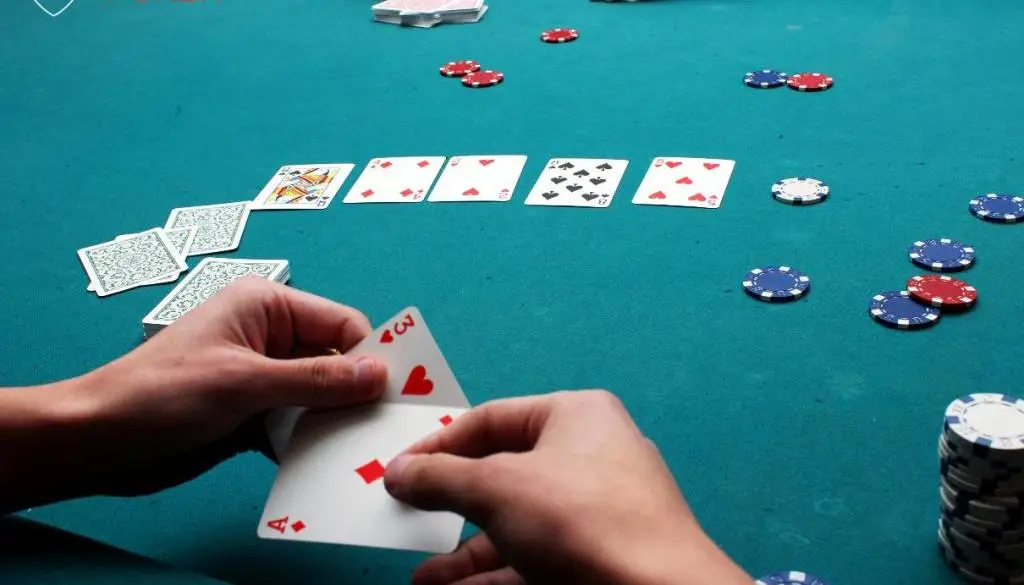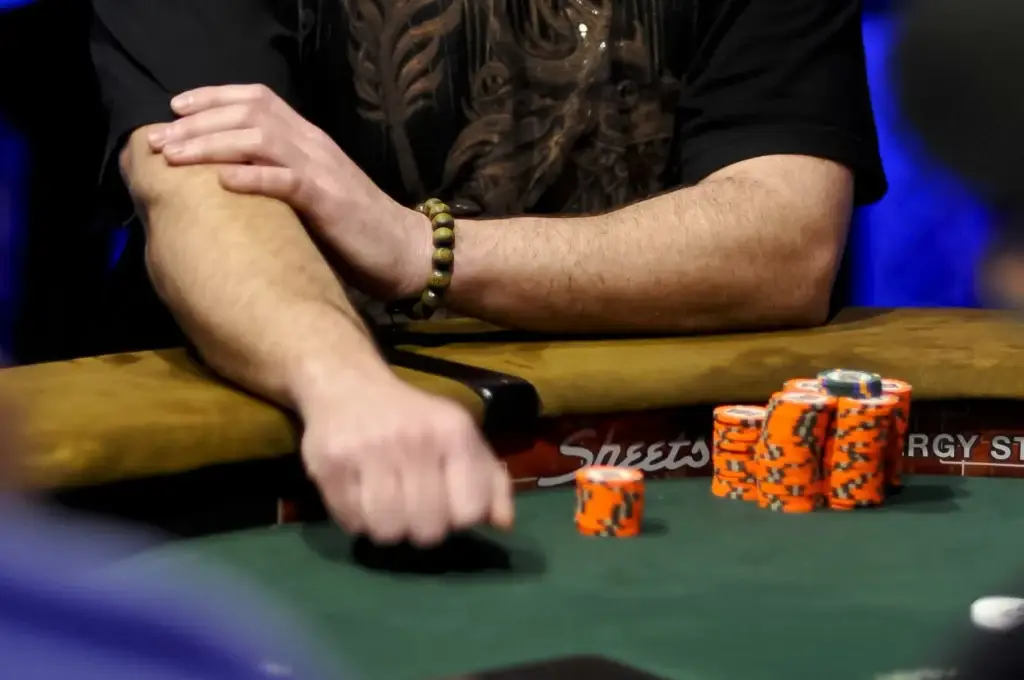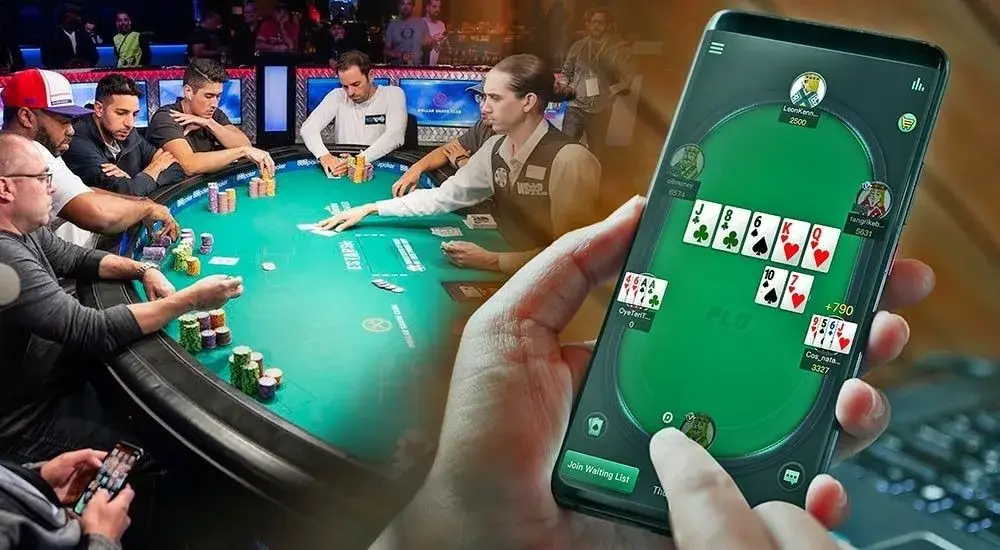In gambling, the path to success doesn’t start with a brilliant hand, but rather with the art of dealing with setbacks. Encountering weak poker hands is an inevitable part of the game, and it happens more often than you might like. It’s during these moments that your skill level, iron discipline, and strategic thinking at the table are truly tested.
What to do if you have weak cards in your hand
Weak poker hands are often seen as a death sentence. However, with the right math and composure, even a garbage hand can be turned into a weapon.
For example, a starting hand of 7♣2♦ may seem hopeless on paper, but with a 12% chance of winning in a small pot, it can be turned into a winning hand with the right strategy. Is this a paradox? No, it’s a strategy.

When faced with a bad poker hand, most people make the mistake of playing on emotions. Such hands test not only knowledge, but also mental stability. This is where tilt comes in, a state in which control gives way to irritation. In such conditions, it’s not the ones who receive the cards who win, but those who can manage the game.
Preflop: How to Avoid Turning a Negative into a Disaster
 The starting phase, the preflop, determines the direction of the game. A bad starter does not guarantee a win, but it requires strict discipline. A player facing a poor hand must be able to assess the situation quickly:
The starting phase, the preflop, determines the direction of the game. A bad starter does not guarantee a win, but it requires strict discipline. A player facing a poor hand must be able to assess the situation quickly:
- position at the table (it is easier to steal blinds on the button than in an early position);
- opponents’ aggression;
- number of chips and depth of stacks.
With a short stack of 15-20 BB, weak poker hands can gain strength through push-fold strategies. In Texas Hold’em, professionals use Nash Equilibrium tables to make even J♦5♠ a viable push in late positions.
Weak poker hands are not a reason to surrender
It is a mistake to believe that when you have bad cards, your strategy is limited to passing. Experienced players turn glass into diamonds using these methods.
Playing against standard lines
A player who receives bad cards often encounters the pattern of opponents. Many expect aggression only from strong hands. Using this pattern, it is possible to apply a counterbet on a dry flop (e.g. K♠9♦3♣) to force the opponent to throw the hand.
Stealing Blinds
Weak poker hands on the button and in the cut-off position are great for raising into a game without resistance. This is especially effective on tables with tight opponents, where every third raise goes unanswered.
Pressure on the turn
If the preflop and flop have passed check-check, and the board structure remains safe, you can bet by pretending to have a nut. This tactic is especially effective in Omaha, where opponents often overestimate the likelihood of a nut hand.
The hand doesn’t decide — the distance wins
Over the long run, weak poker hands tend to lose more often. However, when used correctly, they can be profitable. According to an analysis of 100,000 hands in Texas Hold’em, even hands with a rank lower than J♦ can be profitable if played aggressively in the late position and discarded when necessary.
Each hand requires evaluation: is there a possibility of bluffing? What is the likelihood of a fold equity? What does the opponent’s range indicate? This is where the strategy of playing with bad hands comes into play, which includes:
- choosing situations where bluffing is logical;
- combining play lines;
- aggression when the opponent’s fold-to-cbet is increased.
Flexibility of thinking and adaptation to the current dynamics of the table turn even a vulnerable hand into a point of pressure. Weak poker hands start to pay off when every bet is backed by calculation rather than emotion.
Common mistakes when playing with bad cards
Many people don’t realize that weak card sets are not just a failure, but a tool that requires precise tuning. Common mistakes include:
- Playing out of position. Control over the pot is lost. The player is weakened without information about the opponent’s actions.
- Playing against short stacks. The risk of being pushed is significantly higher.
- Raising without a plan. Without a post-flop strategy, aggression loses its meaning and becomes a pointless waste of chips.
- Binding to the hand. Getting a top pair on a garbage flop does not make the hand strong, especially on multi-way tables.
Each of these mistakes reduces the potential of even the most well-thought-out decisions and leads to a loss over the course of the game. Weak hands require precise calculations rather than intuitive steps without a plan.
How to play with the worst poker hand
Weak combinations in poker only work when you work with the situation as a whole. A simple rule: not playing a hand is also a strategy. When conditions are met — position, stack, and opponents’ behavior — a weak card becomes a tool for pressure.

Decision model:
- Pre-flop: evaluate your position. Cut-off and button give you an advantage.
- Flop: check the texture. A dry flop is better for a bluff.
- Turn: evaluate your opponent’s reaction. If there is no aggression, apply pressure.
- River: complete the line if the play history supports it. Do not cross the line without confirming the logic.
In Texas Hold’em, with a hand of 9♦4♠ on the button, the player opens a raise. The blinds fold. On the flop, A♣7♠2♦, he places a contbet, receiving a pass. This is a typical strategy for playing with bad cards, betting on an isolated flop and folding equity.
5 rules for winning with weak cards
Weak poker hands do not give you the right to play chaotically. Discipline is required to turn bad luck into profit. Here are five clear rules:
- Play only in position. Control over the game is provided by information. Position allows you to act consistently and logically.
- Choose your opponents. Playing against tight players is more effective, as they are more likely to fold to aggression.
- Monitor your stack. A small stack limits your maneuverability. A large stack allows you to play three streets and execute semi-bluffs.
- Study the texture of the flop. A board without wood is ideal for pressure. Rainbow flops with a high kicker (e.g., K♣8♦2♠) are suitable for a continuation bet.
- Evaluate ranges. Each move should be based on a hypothesis: what hand the opponent has and how they will react to the bet.
Discipline transforms even a garbage hand into a tool of pressure. When these principles are strictly followed, weak poker hands stop being a burden and start yielding results.
When is it better to lose a weak hand?
The strategy of playing with bad hands is based not only on aggression, but also on the ability to refuse to participate. The strength lies not in holding the bank, but in refusing to increase it without prospects. A player who folds in a timely manner wins the race and saves their chips for better situations.
The tactic of folding in response to aggression is an element of professional training. In Omaha, where four cards increase the likelihood of matches, weak poker hands are more likely to become a trap. A player who bets on the preflop with J♠9♣6♦3♠ loses their stack 74% of the time when a woody flop comes out.
Control over emotions in the game
A bad hand in poker often triggers a domino effect. After one failure, the player loses focus, increases aggression, and disrupts their strategy. This is the classic poker tilt, the enemy of analysis and the ally of impulsive decisions. Statistics show that tilt increases the number of losses by 42% within a single gaming session.
Managing emotions is the key to controlling a weak hand. Seeing the game as a series of isolated decisions helps to recover from losses and maintain a healthy distance. It’s not the hand options that matter, but the ability to manage them.
Conclusion
 Weak combinations in poker reveal the true level of preparation. A strong player uses weakness as a point of support. Analysis, position, aggression, and control over the bank allow you to win even with minimal chances. Weakness becomes strength when it is backed by a strategy. Actions determine the outcome, not chance.
Weak combinations in poker reveal the true level of preparation. A strong player uses weakness as a point of support. Analysis, position, aggression, and control over the bank allow you to win even with minimal chances. Weakness becomes strength when it is backed by a strategy. Actions determine the outcome, not chance.
 en
en  de
de  ar
ar  es
es  hi
hi  fr
fr  nl
nl  it
it  pt
pt  el
el 









